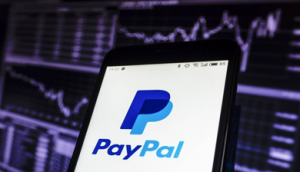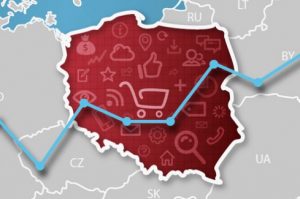News Hub

The Self-Employment Income Support Scheme
The Improvements To The SEISS
Originally, the government announced the Self-Employment Income Support Scheme in late September. The scheme was set to run for two 3-month periods, the first running from November 2020 to January 2021 and the second from February 2021 to April 2021. For the first 3 months, the government said they would provide a taxable grant covering 55% of average monthly trading profits for 3 months. The 55% derived from the fact that the government originally intended to pay 80% of profits for November, in order to keep this scheme in line with the Employee Retention Scheme, and then 40% for the two remaining months. This was to be capped at £5,160 in total. However, after heavy backlash and the implementation of a second lockdown the government increased both the length of the scheme and also the amount those who applied would receive. The first instalment of the scheme will now cover 80% of trader profits, rather than the aforementioned 55% (capped at £7,500). The government also announced a further payment for the SEISS. The additional payment will cover a three-month period from the start of February until the end of April. The Government has indicated that they will review the level of the fourth grant and set this in due course. It has not yet been confirmed when claims for this fourth grant will be open.Who Can Apply
In order to be eligible for the grants, an individual has to carry on a trade which has been adversely affected by COVID-19. When looking at whether a trade has been adversely affected, there is no specific monetary threshold, and no requirement for income or profits to have fallen by a certain amount. Instead, HMRC gives the following examples of how a business could be adversely affected by COVID-19; you’re unable to work because you:- are shielding
- are self-isolating
- are on sick leave because of coronavirus
- have caring responsibilities because of coronavirus
- your supply chain has been interrupted
- you have fewer or no customers or clients
- your staff are unable to come in to work
- one or more of your contracts have been cancelled
How To Claim For The Self Employed Income Support Scheme
To claim, you will need your- Self Assessment Unique Taxpayer Reference (UTR)
- National Insurance number Government Gateway user ID and password
- UK bank details including account number, sort code, name on the account and address linked to the account
Deadline For The Support Scheme
The deadline is the 29th of January 2021 – so be quick! In what ways has your business been affected by the Coronavirus? Let us know in the comments section below, or by sharing this article on social media! At J&P, helping small businesses is our passion, and we understand that individual traders and self employed persons across the UK are at risk now more than ever. We would be more than happy to provide you with accounting and taxation services, such as UTR application, self assessment tax returns, and Self-Employment Income Support Scheme advice and support. We are here to help you through the Coronavirus crisis, so please do not hesitate to give us a call on 0161 637 1080 or send an e-mail to enquiries@jpaccountant.com.
Daily News Round Up January 11th-15th
Daily News 11th January 2021
Business News: Exporters Given 12 Month Grace Period On Rules Of Origin
British exporters to the EU will not have to submit rules of origin declarations for 12 months as part of a grace period agreed by the UK and Brussels. Whilst businesses must still comply to the rules, they do not have to provide paperwork as proof of compliance for the first 12 months.
J&P Comments
The rules of origin essentially states that goods that originate from outside of the UK or EU will not fall under the zero-tariff agreement. For some manufacturers this was extremely problematic as they source parts from all over the world. They will be relieved that they now have 12 months to get their affairs in order.

Business News: More Chinese Taxpayers Allowed To Issue Electronic Special Invoices
China’s new e-invoicing system is to be extended once again. After successful trials in certain regions, the system was extended last month. Following the success, the system is to be extended once again from the 21st of January.
J&P Comments
Previously, all VAT special invoices had to be issued in physical form (i.e., paper invoices). However, a pilot program was introduced on 1 September 2020 allowing taxpayers in the cities of Hangzhou, Ningbo, and Shijiangzhuang to issue electronic VAT special invoices. This system has been very successful and, as of January 21st, will be useable in Beijing. It is worth remembering that digital signature is used for invoice recipients to verify the authenticity of such an invoice, rather than an official stamp.
Tax News: British Tax Rise To Be Delayed
It is expected that Rishi Sunak will not be raising taxes in the upcoming budget on March 3rd. Government sources have said that the upcoming budget is the “wrong time”, and will likely be delayed until autumn at the earliest.
J&P comments
Reportedly, Sunak has also rejected calls to extend a temporary cut to taxes on property purchases, known as stamp duty, that is due to expire at the end of March. It is worth bearing in mind that these decisions could change due to the unpredictable nature of the effects the coronavirus could have in the coming weeks.

Daily News 12th January 2021
Business News: Italy Extends Marketplace’s Seller Reporting
In order to align with the EU’s introduction of the EU’s forthcoming 2021 EU ecommerce marketplace VAT liabilities, Italy have extended their new marketplace reporting obligations on their sellers’ transactions from 31st Decemeber 2020 to 30th June 2021.
J&P Comments
The obligations cover sellers distance selling and importing goods for sale via facilitating electronic platforms. The original test for ‘facilitating’ sales, and therefore being obliged to report them, includes: Setting the terms and conditions, fulfilment of orders through processing sales and delivery of goods, and the collection of the cash payment.

Ecommerce News: UnionPay & PayTabs Partner To Boost UAE Ecommerce
UnionPay and PayTabs have announced a strategic partnership that allows PayTabs merchants to offer UnionPay Cards as an alternative payment method to customers who purchase goods and services online in the United Arab Emirates.
J&P Comments
It is reasonable to assume that this partnership will improve the checkout experience for UAE customers and will therefore improve conversion rates. To date, eight billion UnionPay cards have been issued globally, giving PayTabs merchants in the UAE access to tap into this profitable segment of cardholders that have higher spending potential.
Ecommerce News: Etsy Redesigns Community Teams Feature
Etsy is re-launching a community feature called Etsy Teams. This allows sellers to create groups and support each other. The new launch will allow sellers to connect more easily, and will also allow them to find new teams more easily.
J&P comments
Etsy is changing the Team homepage layout and adding new features including blog posts, knowledge base articles and a new ‘featured’ section at the top of the page. This will be welcomed news to sellers on Etsy as the feature can certainly be beneficial.

Daily News 13th January 2021
Logistics News: Amazon Acquire 2 More Warehouses
Beginning 2021 as they mean to go on, Amazon have acquired two more warehouses in the UK; one in Bristol, and one in Birmingham. The two warehouses will be converted to new-style parcel delivery hubs, and are a reaction to the increased demand for ecommerce.
J&P Comments
This is yet another example of Amazon capitalising on the surge in ecommerce due to the global pandemic. The Birmingham warehouse covers over 110,000 sq ft, whereas the Bristol warehouse covers over 315,000 sq ft. These facilities will help Amazon delivery more efficiently all over the UK.
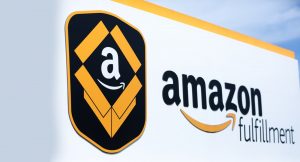
Logistics News: Increased Confusion At UK Ports
Industry leaders have claimed that the delays at ports have been increased by officials at ports being unsure on the new regulations. UK MP’s have been informed that there is high levels of delays and confusions at ports, mostly down to the uncertainty over paperwork.
J&P Comments
The main problem appears to be that exporters and importers have not have enough time to learn or trial the new regulations. The trade pact between London and Brussels was not finalised until Christmas Eve, two months after the original deadline for an agreement. It meant there was just one week between the trade deal being struck and its implementation on January 1.
Ecommerce News: Amazon India Launches Online Academy
Amazon.com Inc has launched an online academy to train students for one of India’s most competitive college entrance tests, the e-commerce giant said on Wednesday, as it taps a boom in virtual learning during the COVID-19 pandemic.
J&P comments
This is astute from Amazon since India has seen a boom in online education, or ed-tech, a market which has only expanded as the pandemic forced schools to close. The country’s online education market for grades 1 to 12 should expand six-fold to $1.7 billion by 2022, while the market for students beyond grade 12 is set to nearly quadruple to $1.8 billion, consultancy RedSeer estimates.

Daily News 14th January 2021
Logistic News: DHL Have Brexit Under Control
Industry leaders DHL have reported a strong start to the year and feel well equipped to deal with the new Brexit measures. CEO John Pearson went on to say that he believes the boom in ecommerce, due to the pandemic, will continue for the foreseeable future.
J&P Comments
DHL’s efficiency in complying with the new Brexit regulations will offer some hope to smaller logistics companies. While DHL obviously have a vast array of resources at their disposal, the fact that they have got to grips with the new regulations quickly will hopefully mean that other logistics companies will also do so soon.

Ecommerce News: PayPal Eyes Bigger Foothold In China
PayPal Holding Inc has become the first foreign operator with 100% control of a payment platform in China, according to Chinese government data, as the U.S. fintech giant eyes a bigger foothold in a booming market for online payments.
J&P Comments
Whilst PayPal has been present in China for some time, it has now acquired the 30% stake it didn’t already own in China’s GoPay, formally known as Guofubao Information Technology Co., on Dec. 31, 2020, according to shareholder data from the National Enterprise Credit Information Publicity System.
Ecommerce News: Brexit Impacts Ebay’s Terms
Ebay has updated its terms for their Global Shipping Program in order to make sure sellers are complying with Brexit rules. Now UK sellers who are using the service must insure they are in a position to export goods into the EU by obtaining an EORI number.
J&P comments
This change was to be expected and now lets ebay sellers know the requirements they must fill. Indeed, when selling to the EU from the UK, even through a online marketplace, you must have an EORI number. These changes will apply to existing users of the service have until early February to comply with the new rules.
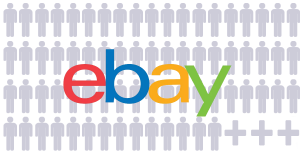
Daily News 15th January 2021
Business News: Insurers Ordered To Pay Small Firms For Lockdown Losses
After a long court battle, the Supreme Court has ruled in favour of small firms receiving payments from business interruption insurance policies. Up until this point, insurers have refused to pay, arguing only the most specialist policies had cover for such unprecedented restrictions.
J&P Comments
This is fantastic news for small businesses in the UK. Whilst the parameters of what will be considered a ‘valid claim’ is not completely clear yet, the ruling provides guidance for a wide pool of 700 policies, potentially affecting 370,000 small businesses.

Ecommerce News: Ecommerce In Poland Breaks Records
In 2020, online purchases in Poland reached an all-time record high. This makes Poland one of the fastest growing ecommerce markets in Europe, and is indicative of the coronavirus’ affect on global ecommerce.
J&P Comments
According to data from Statista, online spending reached 10 billion euros on the main product categories, clothing, consumer electronics, furniture, food, and toys. That’s an increase of about 25 percent compared to the situation of ecommerce in Poland in 2019.
Ecommerce News: Ebay Reporting Could Cause Problems For Seller’s
Sellers have raised concerns about the fact that eBay’s ‘managed payments’ only allows sellers to access their selling data from the last 90 days. Since for some sellers eBay collects sales tax on behalf of many sellers. Without their records, sellers are unable to find out how much tax eBay collected on their behalf, and are thus not able to calculate how much they can deduct from their own records.
J&P comments
An executive said this week eBay is working on extending reporting to a full year, but it may not come in time for tax time. The eBay employees explained solutions that might work depending on when they enrolled or were forced into Managed Payments – you can find their advice on the eBay for Business podcast, January 12, 2021.
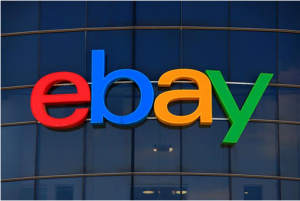

Coronavirus Support For Businesses
The last few months have been the hardest many businesses have ever had to endure. The constant lockdowns have meant many businesses have been forced to close, and due to the subsequent lack of revenue, many will never reopen. In an attempt to save as many companies as possible, the government have recently pledged a further £4.6 billion in grants to be made available to businesses in the hospitality, retail and leisure facilities. This is a part of their coronavirus support for businesses. This article will tell you all you need to know about the new grant, as well as support you can apply for if your business does not fall under one of the aforementioned industries. You can also find additional information on further support here.
How Does The Grant Work?
The news of more coronavirus support for businesses will certainly be well received. If your business has been forced to close due to the government lockdown and your business is in the industry of hospitality, retail or leisure, you will be eligible for the grant. Chancellor Rishi Sunak is terming the grants as ‘top-ups’ since they are in addition to support you may have previously received (although you do not necessarily have to have had previous support).
The cash is provided on a per-property basis to support businesses through the latest restrictions, and is expected to benefit over 600,000 business properties, worth £4 billion in total across all nations of the UK.
There is £4,000 available for businesses with a rateable value of £15,000 or under; £6,000 for businesses with a rateable value between £15,000 and £51,000; and £9,000 for businesses with a rateable value of over £51,000.
The government has also provided 100% business rates relief for retail, hospitality and leisure businesses.
How Can You Access This Coronavirus Support For Businesses?
So far there has been little information as to how one might go about actually receiving the grant, since so far businesses have just been advised to contact their local authorities.
However, since the first lockdown each new form of coronavirus support for businesses has been relatively simple to apply for, and in some cases businesses who have received previous support have been automatically contacted.
Keep an eye on communication from the HMRC and our social media for the latest updates in all coronavirus support for businesses.
What Coronavirus Support For Businesses Can I Get If I’m Not In Retail, Hospitality Or Leisure, But My Business Has Still Been Affected?
If your business has been forced to close due to lockdown but it does not fall under any of the industries that are covered in this scheme you may still be able to access coronavirus support for businesses.
Alongside the scheme, the government also announced that they were going to be giving local authorities close to £600 million in the form of a discretionary fund. The aim of this fund is to give local authorities the ability to provide support on an individual basis.
Again, for this funding you will have to contact your local authorities, but it is worth bearing in mind that a lot of businesses will be doing the same and so you may experience some delays. Therefore you should contact your local authority as soon as possible.
Conclusion
Whilst the government have come under a lot of criticism for their handling of the pandemic so far, it is clear that they have tried to support the hospitality and leisure sector from the start. Since these businesses are among the most affected, these latest grants will be welcomed news to all business owners in those industries. Remember to ensure you contact your local authorities as soon as possible in order to access the support.
In what ways has your business been affected by the Coronavirus? Let us know in the comments section below, or by sharing this article on social media! We will endeavour to keep you up to date on all the latest coronavirus support for businesses.
If you are a UK business who participates in cross border e-commerce, we would be more than happy to provide you with accounting and taxation services, such as Company House registration, confirmation statements, and statutory financial reports. At J&P, helping small businesses is our passion, and we understand that companies across the UK are at risk now more than ever. We are here to support you through the Coronavirus crisis, so please do not hesitate to give us a call on 0161 637 1080 or send an e-mail to enquiries@jpaccountant.com.

VAT On Services: HMRC Gives Clarity
Regular readers of this blog, or those who are closely following the communications of the HMRC, will be aware that there has been a lot of uncertainty around how one might account for VAT on services after Brexit. Whilst we did a previous article that speculated how services may be treated post-Brexit, the HMRC have finally given us clarity and thus this article will update you on how you should be accounting for VAT on any services you provide from the UK to the EU (or vice versa).
Where Should You Pay VAT On Services
It was previously assumed that little would change, and services supplied from the UK to the EU would be classed as originating in the UK, and thus would be subject to UK VAT.
This is not the case.
In fact, the services will be subjected to the new Use and Enjoyment rules. The use and enjoyment rules are intended to make sure taxation takes place where services are consumed where either services are consumed within the UK but would otherwise escape VAT, or they would be subject to UK VAT when consumed outside the UK.
Effective use and enjoyment takes place where a recipient actually consumes services irrespective of the contractual arrangements, payment or beneficial interest.
The services covered by these rules are:
- the letting on hire of goods (including means of transport)
- electronically supplied services (B2B only)
- telecommunications services (B2B only)
- repairs to goods under an insurance claim (B2B only)
- radio and television broadcasting services.
In short, when supplying a service the supplier will have to pay VAT to the country in which the services are used. This applies both for services supplied from the UK to the EU and services supplied from the EU to UK.
Digital Services
Similar to other services, any VAT on digital services should be paid to the place that they are used, regardless of where they originated.
However, UK suppliers should be aware that they can no longer use the VAT MOSS system. This means that VAT will be due on all EU sales of digital services, regardless of the price as there is no longer a tax threshold on digital services. Find out here how to pay Vat to the EU on digital services.
Suppliers of EU services to the UK should register and account for UK VAT.
Essentially, all of this means that the EU and the UK will just see each other as any other non-member country in the case of services.
Indeed, when a UK service provider is invoicing a non-EU individual for services listed within Value Added Tax Act 1994 (VATA94) schedule 4a, paragraph 16(2), the place of supply is where the individual resides, therefore, outside the scope of UK VAT. See VAT notice 741a sec 12.
Since Brexit (1 January 2021), this has extended to all non-UK consumers, including the EU.
Conclusion – VAT On Services
The main thing to bear in mind is that services are being treated in a very different way to goods by the EU and UK post-Brexit. Whilst the two parties have remained a strong relationship in the trade of goods and have decided that origin of goods is wherever they are produced, they have done the opposite with services and have decided that suppliers must account for tax in the countries that their service is used and enjoyed.
If you are a business who participates in cross border e-commerce and supplies services, we would be more than happy to help you register for VAT, file your VAT returns, and help you comply with VAT in case your account faces any issues. We even offer warehouse storage across in the UK and Europe.
At J&P, helping your business is our passion, and we understand that companies across the UK are at risk now more than ever. We are here to support you through the Coronavirus crisis and Brexit, so please do not hesitate to give us a call on 0161 637 1080 or send an e-mail to enquiries@jpaccountant.com.

Working From Home Tax Relief
In October of last year, the government introduced a new tax relief scheme for those who were being forced to work at home due to the coronavirus in the hope of alleviating some of the added financial costs the individual would incur on their bills (electricity and heating from being in the house all day etc.). At the time, this scheme seems to go under the radar; indeed, despite millions of us working from home it was estimated that only 60,000 people have taken advantage of the scheme. This is possibly due to the fact that the tax relief would only come in the form of a very nominal sum. However, since the second lockdown in the UK is forcing most to work from home for the foreseeable future, the scheme is definitely worth reconsidering.
How Much Could You Stand To Earn From Working From Home Tax Relief?
The first way in which those who have been forced to work from home can receive tax relief is from the added amount they will have to pay on their bills. The government has calculated that individuals will have had to pay about £6 a week extra on bills, and thus individuals can claim back the tax on this £6.
Please note that this does not mean you will be entitled to a refund of £6 a week. Rather, you will be entitled to the tax you would have paid on that £6 according to your tax bracket. For example, if you earn between £12,500 and £50,000 you would receive 20% of the £6 a week (£1.20).
Also you don’t receive the refund in the form of a payment. Instead, the amount just gets added to your pay check for the required amount of months (or, more specifically, it is deducted from the tax you would normally pay when you receive your pay check.
You can theoretically receive more if you are able to show that the costs you have incurred are actually more than £6. However, this would require you show receipts and prove the incurred costs.
The relief up to £6 requires no receipts.
Can You Claim On Any Equipment You Had To Buy To Work From Home?
The short answer is yes. If you have bought equipment in order to work from home you can claim tax relief on these purchases from the government. However, unlike the application for the tax relief on your bills, to benefit from this tax relief you must be able to show receipts.
Furthermore, the items you apply for tax relief on must be used exclusively for working from home. For example, if you buy a dining table which you happen to work on, this will not qualify. However, if you buy a desk that is specifically for use of working on then this would be acceptable. Tax relief is available up to a maximum of £2,500.
If you are an employer and you have reimbursed your employee for any equipment they were required to buy then you may claim tax relief on the money you paid to your employee.
In order to be eligible for either of these schemes you have to have been forced to work from home by your employer as a result of the coronavirus pandemic. If you have merely chosen to work from home voluntarily you will not be eligible to either scheme.
How To Apply For Tax Relief When Working From Home
Both these schemes are remarkably easy to apply to. You will need a government gateway ID to begin the applications. One of these can usually take about 5-10 minutes to create and you will likely benefit from having a pay slip or passport to hand in order to complete the registration.
This being done, you will simply have to answer a few questions before completing the application for tax relief on your bills; these questions are simple, such as do you complete self-assessment returns and has your employer paid you working from home expenses, and you simply tick yes or no.
You will then be taken to the application which takes about 2 minutes to fill in. Please note that you must complete this application for yourself only, nobody else can apply on your behalf.
A similar process is required for the tax reimbursement on equipment you have had to buy, but the questions vary slightly. Before completing your application you will be asked as to whether you paid tax in the year for which you are claiming the expenses, and also whether your employer has reimbursed you at all.
Please be aware that neither of these schemes are applicable to you are furloughed, and thus using the government’s job retention scheme.
Conclusion
Whilst many may have ignored these schemes before since the amount seemed insignificant, it is impossible to know how long the lockdowns and restrictions will be in place. By applying to either of these schemes, you could stand to save £100s in tax over the next couple of years.
If you need any help with any of the government schemes, or you are interested in inventive ways to save money in the midst of the coronavirus and Brexit, we can help you.
J&P is a registered accounting firm in the UK. We have the qualifications and strength to help you plan ahead, so please do not hesitate to get in touch should you have any further questions about this policy, or if you need any help with your applications to register for VAT. Contact us at enquiries@jpaccountant.com or call us at 07734 182821.

The UK Trader Scheme: The Latest HMRC Scheme
The Brexit transition period comes to an end on January 1st 2021. As regular readers of this blog will know, Northern Ireland will enjoy the dual-status of being part of both the UK customs regime and the EU’s. This means that tariffs will only be in place on goods moving from the UK to Northern Ireland that are destined for the EU, or where there is a uncertainty or a genuine risk of onward movement. However, to ensure your goods moving to Northern Ireland from the UK are not subject to tariffs or EU duties, you must sign up for the UK Trader scheme. You might also be interested in the Trader Support Service, a free service that can guide you through the process. This article will outline what both the schemes are and how to apply for them.
UK Trade Scheme (UKTS)
The UK Trader scheme became available to UK traders last week. Essentially, the scheme allows you as a trader to ‘self-declare’ goods that are not ‘at risk’ of moving on to the EU after entering Northern Ireland. As stated earlier, this means the goods sold will not be subject to EU duties or tariffs, regardless of the outcome of the Brexit negotiations.
This UK Trader scheme has gone slightly under the radar, which is worrying considering the deadline for applications is the 31st of December 2020. Whilst your application may not be accepted immediately, traders will be granted a provisional authorisation for a period of up to 4 months while the HMRC processes all applications.
The scheme is open to businesses of all sizes and across all industries, so long as they operate under the Northern Ireland Protocol.
It is worth bearing in mind that those applying to the HMRC for the UKTS will have to meet some basic requirements and, importantly, must be able to show that they are able to accurately declare and evidence whether good are at risk of being sold on to the EU or not.
To apply for the scheme, click here.
Trader Support Service (TSS)
In order to help businesses implement the necessary changes from the end of the transitional period, the HMRC have launched the Trader Support Service. This service will help you move goods from the UK to Northern Ireland and can complete declarations on your behalf.
The service is free to use and will guide you through any changes to the way goods move between the UK and Northern Ireland. It will also help you identify whether your goods should be considered ‘at risk’ or not.
This service is free for anyone to use, even if you are moving the goods on behalf of someone else, and works in perfect harmony with the UKTS.
To sign up for the service, click here.
Conclusion – The UKTS & TSS
It would be very wise to apply for both of these schemes before the deadline on the 31st of December, especially when one considers there is likely to be a lot of orders from Northern Ireland in January. This is because from Boxing Day (26th of December) Northern Ireland is entering a six week lockdown, which will mean the closure of all non-essential retail shops, as well as a ban on click-and-collect retail. Due to Northern Ireland’s relatively small size in terms of e-commerce, many consumers will look to the UK for shopping.
Understanding and applying for applications of this nature can sometimes be difficult, but that’s where we come in.
If you are a business who participates in cross border e-commerce, we would be more than happy to help you register for the VAT deferral scheme, file your VAT returns, and help you comply with VAT in case your account faces any issues. At J&P, helping your business is our passion, and we understand that companies across the UK are at risk now more than ever. We are here to support you through the Coronavirus crisis and Brexit, so please do not hesitate to give us a call on 0161 637 1080 or send an e-mail to enquiries@jpaccountant.com.



